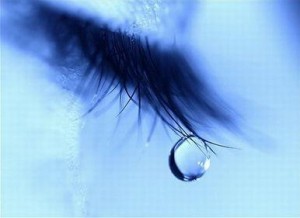My March has started off with a great loss. My Great Uncle just recently passed away and although my family was prepared for his death, dealing with a loss and grief is never easy. Just this past week, two close friends and a patient have also experienced loss of family members. In Traditional Chinese Medicine, the body, mind and spirit are treated as one, with each aspect influencing the other. Emotional distress consequently effects the physical body and physical injury can induce emotional instability. We have all experienced grief at some point in our lives. Whether it is the loss of a loved one, a pet, or a failed relationship, experiencing grief is part of being human. Emotions are natural and when expressed freely, will not cause lasting damage. It is when we internalize emotions, or get stuck in a repetitive pattern that we have the potential to create an imbalance.
passed away and although my family was prepared for his death, dealing with a loss and grief is never easy. Just this past week, two close friends and a patient have also experienced loss of family members. In Traditional Chinese Medicine, the body, mind and spirit are treated as one, with each aspect influencing the other. Emotional distress consequently effects the physical body and physical injury can induce emotional instability. We have all experienced grief at some point in our lives. Whether it is the loss of a loved one, a pet, or a failed relationship, experiencing grief is part of being human. Emotions are natural and when expressed freely, will not cause lasting damage. It is when we internalize emotions, or get stuck in a repetitive pattern that we have the potential to create an imbalance.
According to Chinese Medicine theory, the Lungs control respiration, dominate our Qi and are connected to the emotion of grief. Our lungs take in fresh oxygen and energy from the external environment and through exhale release waste and build up from the body. Grief is said to “consume the Qi.” When we experience prolonged, intense grief or sadness, we may experience physical symptoms. Physical symptoms of disharmony in the Lungs would include shortness of breath, asthma, allergies, sweating, fatigue, coughing, frequent colds/flu and dry skin. Grieving is a necessary process. We must allow ourselves to go through all the stages before we can return to a state of joyfulness. This process is personal and multi-layered.
It is important to remember to take time out and breath deeply while grieving. Acupuncture can be utilized as one unique tool in the grieving process by stimulating points that strengthen the Lung (Metal meridian) and calm the mind. It can help ease the path to renewed joy by offering not only a place for your body to heal but a quiet time of reflection.
